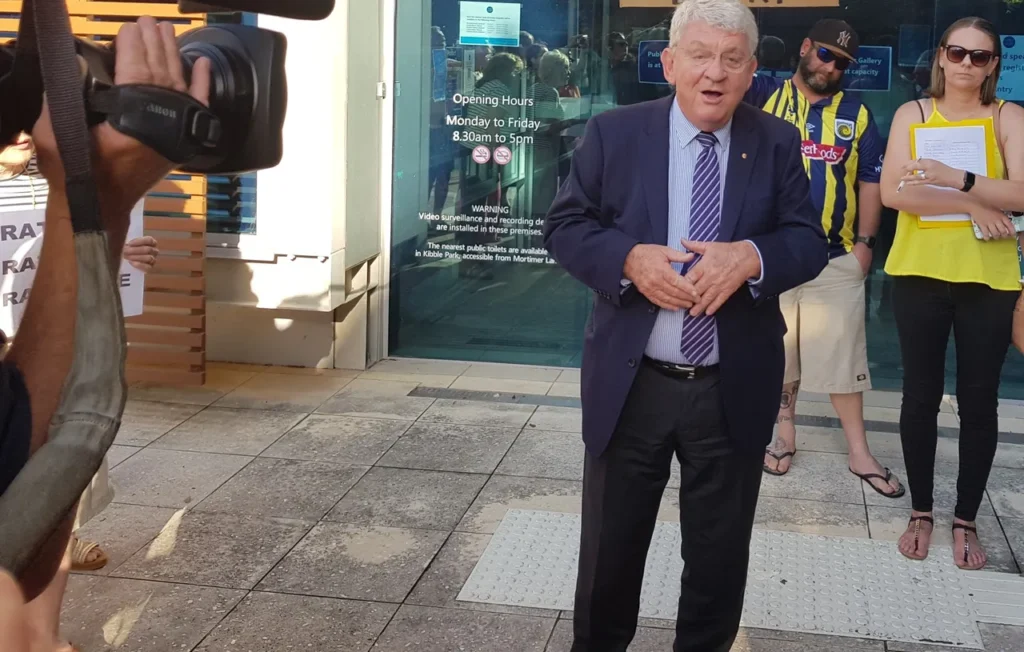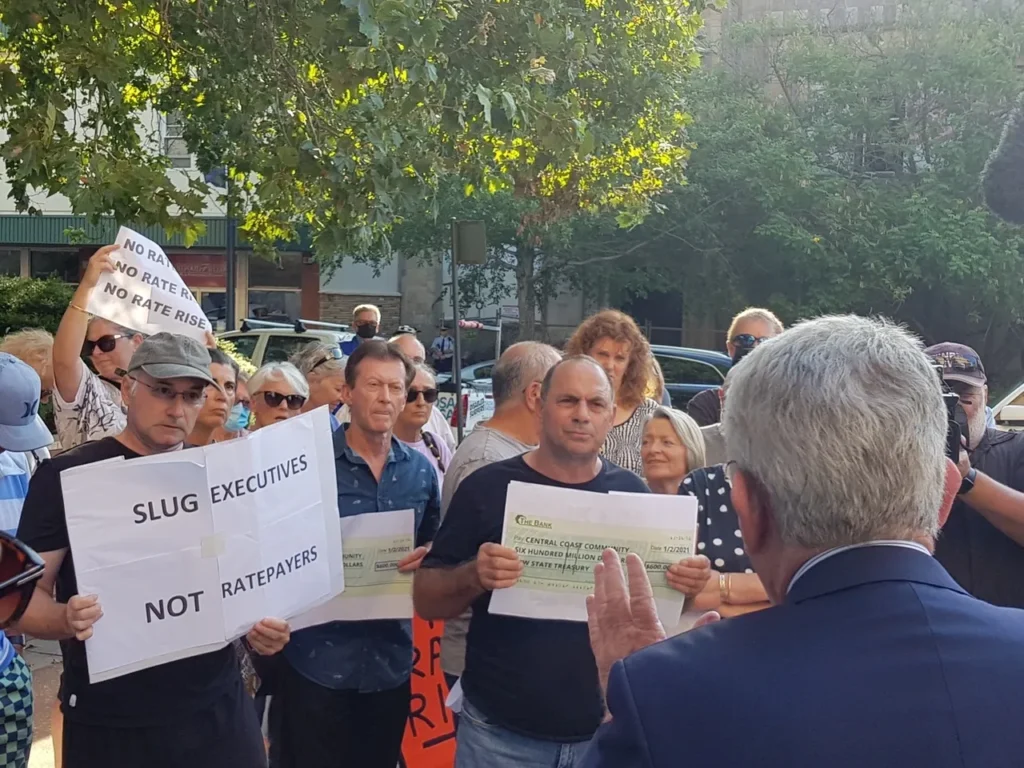
Part 1 – setting the scene… Jackie Pearson examines what life is like living in a NSW Local Government Area that doesn’t have an elected local government.
The residents and ratepayers of the Central Coast have been ‘governed’ under an administrator for 42 months out of the past 80 (that’s over six and a half years) and have had elected Councillors for the other 38 months.
The latest NSW Government-appointed Administrator, Rik Hart, likes to say he is fulfilling the role of the elected councillors. The Local Government Act bestows upon him all the powers of the elected councillors but it is not possible to expect one person to replace 15 in a Local Government Area (LGA) with a population of around 350,000 people.
This region had two Councils until May 2016 – the Gosford City Council and the Wyong Shire Council.
Both were deemed “unfit for the future” as part of a process undertaken by the O’Farrell-Baird-Berejiklian-Perrottet NSW Government, sacked in May 2016, and replaced with the one Central Coast Council.
A 16-month administration period followed until September 2017 when we were given an election.
Then we had an elected council consisting of 15 councillors from five wards which gave us a mix of six Labor, five independents and four Liberals.
That elected council had problems: some councillors were inexperienced; others were too experienced; and, behind the scenes, there was intimidation of councillors by other councillors and by the “operational” side of the council, and an unsupportive culture emanating from the operational arm.
A cash crisis ensued in October 2020. It was revealed that council staff had been spending restricted funds without the permission of the councillors or the Minister for Local Government, which is, depending on whose legal interpretation you believe, ‘unlawful’.
Rather than assist the council, the Local Government Minister at that time, Shelley Hancock, suspended the councillors and installed an interim administrator.
The Point has been informed that the Parliamentary Secretary for the Central Coast and Member for Terrigal, Adam Crouch, was instrumental in the decision to suspend the councillors and that Labor MPs capitulated.
Dick Persson AM came out of retirement to do the job and Rik Hart was appointed as acting CEO.
After a great deal of public pressure, the NSW Government agreed to a public inquiry into what had happened at Central Coast Council and, finally, last month, Commissioner McCulloch released her findings.
The immediate upshot of the McCulloch report was that the latest Local Government Minister took steps to permanently removed the 15 councillors – the Central Coast’s period under administration continues.
Terms of reference too narrow
The community wanted a judicial inquiry into the workings of the Central Coast Council – over 20,000 locals signed a petition asking for just that but were given a public inquiry instead and that public inquiry had very limited terms of reference. https://www.centralcoast.nsw.gov.au/council/about-council/public-inquiry
The commissioner was given the power to “inquire and report to the Minister for Local Government with respect to whether” the governing body (the councillors) exercised their functions in a manner consistent with the Local Government Act.
In particular, she was required to report on: whether the governing body acted in a manner that maximised the success of gaining efficiencies and financial savings from the merger process; disregarded the financial consequences of its decisions; and whether the governing body’s decisions since 2017 contributed to the financial position reached by October 2020.
She was asked to report on whether the decisions taken by the councillors had “regard to the financial sustainability of the council, and that they kept under review the performance of the council, including that council spending was responsible and sustainable by aligning general revenue and expenses”.
She was finally given permission to consider “any other matter that warrants mention, particularly those that may impact on the effective administration of Council’s functions and responsibilities or the community’s confidence in the Council being able to do so”.
The community hoped this meant she would consider matters which occurred during the first period of administration, the current period of administration and that she’d look at the behaviour of the well-paid executive leadership team (ELT) and the operational side of the business. That hope was squashed by McCulloch’s report, which let the ELT and the NSW Audit Office completely off the hook and persecuted the elected councillors for myriad problems that were completely out of their control.
Coming up next in our Life without a local government series, we take a deep dive into the report of Commissioner McCulloch and assess, from a resident/ratepayer’s perspective, whether the public inquiry did justice to the situation on the Central Coast.
What can you do?
1. Attend a council meeting and find out what local government is all about
2. Find out who your elected councillors are and engage with them over local issues (you never know when you might lose them)
3. Talk to state politicians about local government – it only exists in Australia at the behest of state and territory governments – it is not provided for in the Australian constitution.
4. Learn about planning – this is the system that decides what gets built and where – it has a major impact on local social and environmental justice


